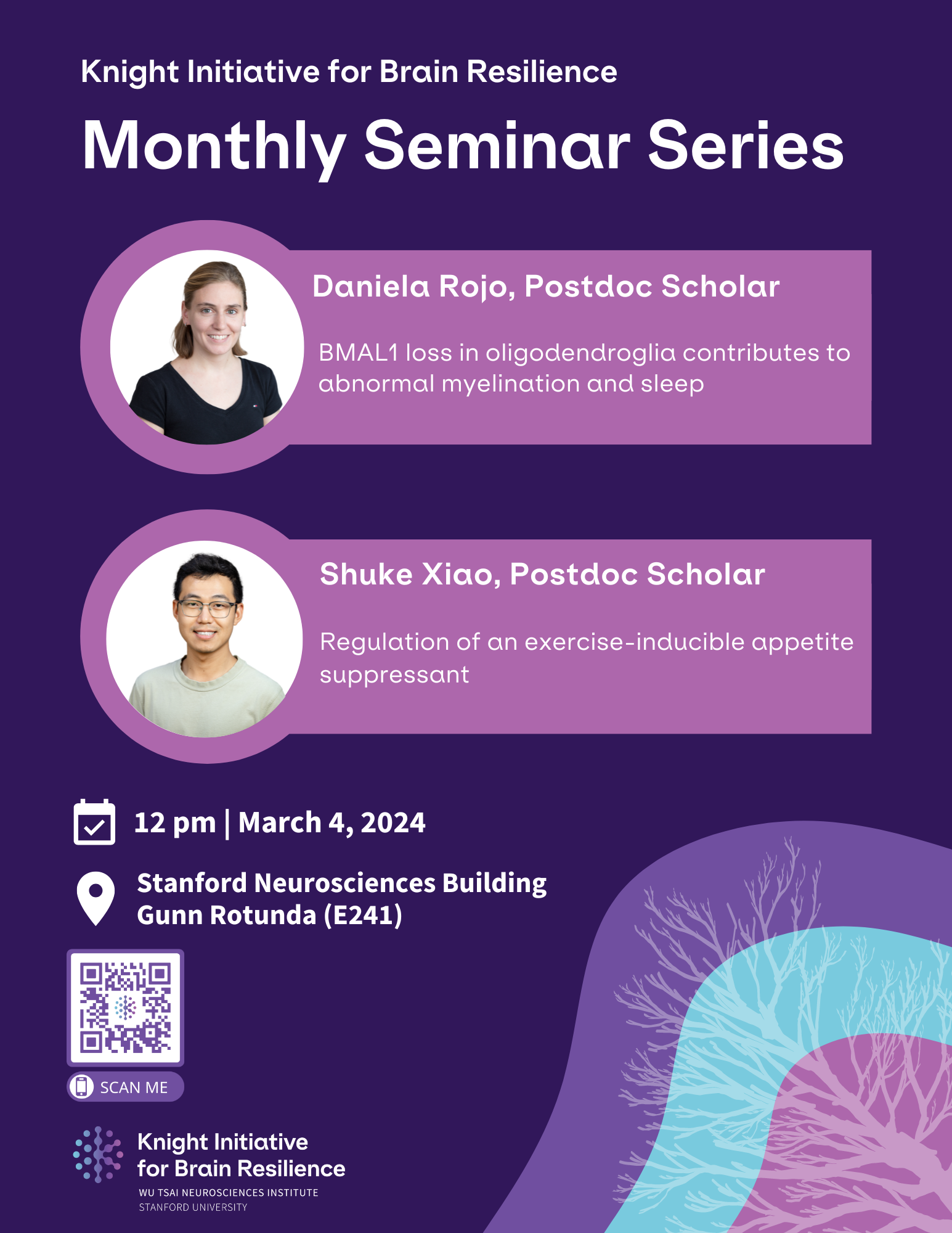Event Details:

The first Monday of each month, the Knight Initiative for Brain Resilience will host monthly seminars to bring together awardees, affiliated professors and students for a series of 'lab meeting' styled talks. Two speakers will discuss their brain resilience research, experiences in the field, and answer questions about their work.
Shuke Xiao, Stanford University
Regulation of an exercise-inducible appetite suppressant
In the face of an aging population, neurodegenerative disorders are escalating, posing a growing global health challenge without an effective cure. In several neurodegenerative conditions, the RNA binding protein TDP-43 forms cytoplasmic clumps in neurons, losing its vital function. Despite its essential role in disease, the full spectrum of TDP-43's regulatory pathways, the causes of its dysfunction, and its contribution to neurodegeneration remain elusive. Beyond splicing, TDP-43 also regulates other aspects of RNA processing, prompting the question: do these additional pathways contribute to disease? In this work, we discovered that TDP-43 extensively regulates alternative polyadenylation (APA), a critical layer of gene expression, and its loss triggers widespread APA changes, impacting disease-associated genes. This underscores APA as a novel dimension in TDP-43 pathology, offering a potential therapeutic target. Looking ahead, I will explore the broader landscape of RNA homeostasis in disease pathogenesis and develop new approaches to target RNA processing events therapeutically.
Daniela Rojo, Stanford University
BMAL1 loss in oligodendroglia contributes to abnormal myelination and sleep
Myelination depends on maintenance of oligodendrocytes that arise from oligodendrocyte precursor cells (OPCs). We show that OPC-specific proliferation, morphology, and BMAL1 are time-of-day dependent. Knock out of Bmal1 in mouse OPCs during development disrupts expression of genes associated with circadian rhythms, proliferation, density, morphology, and migration, leading to changes in OPC dynamics in a spatio-temporal manner. Furthermore, these deficits translate into thinner myelin, dysregulated cognitive and motor function, and increased sleep fragmentation. OPC-specific Bmal1 loss in adulthood does not alter OPC density at baseline but impairs remyelination of a demyelinated lesion driven by changes in OPC morphology and migration. Lastly, we show sleep fragmentation is associated with increased prevalence of the demyelinating disorder multiple sclerosis (MS), suggesting a link between MS and sleep that requires further investigation. These findings have broad mechanistic and therapeutic implications for brain disorders that include both myelin and sleep phenotypes.

